Decolonising science through translation
Decolonise Science is a collaboration between translators, computer scientists and science communicators which aims to expand the horizons of scientific texts and content into six African languages including Yoruba, Luganda and isiZulu. Sibusiso Biyela spearheads the science communication of the project, which uses artificial intelligence (AI) to create a translation algorithm. However, the programme is only as good as the data it is given.
“To translate scientific content into African languages, the algorithm must have a lot of great science text already translated into African languages. That doesn't exist yet,” says Biyela.
Indeed, English has been the dogmatic default of communication in science for centuries. Its reign has entirely excluded African languages, leaving very little space for diversity and inclusion in the field. Through Decolonise Science, Biyela, hopes to change this.
Since childhood, Biyela has been enthralled by anything science related. Growing up in the 90s, he devoured science documentaries (which were exclusively presented in English) and shared his passion with anyone who would listen. Yet, he found it difficult to speak about science in his home language, isiZulu.
“I've always loved my home language, but there's no science content or interaction in isiZulu,” says Biyela. “Science is just not something that's talked about in that language.”
One of the reasons, it seemed to Biyela, was that isiZulu didn’t have the vocabulary for science. This sparked a passion for decolonising science that has culminated in him joining Decolonise Science and helping to unravel the influence of colonial science on Africa and its languages.
“It's frustrating to see that a lot of people think of science as a very recent invention, a very European invention that doesn't apply to them. Since I was little, I’ve been trying to change that,” he says.
The challenge, he says, is that the history of science itself is inextricably linked with colonialism. For example, during Apartheid in South Africa, Afrikaans and English were enforced as the languages of education.
“It’s not natural that Black people are less inclined to do science. But, based on history and the conditions we find ourselves in, a lot of people distrust science,” says Biyela.
African languages retain reminders of colonialism to this day, most notably in the significant gap in vocabulary around science and technology. Biyela recalls numerous conversations in his home language, isiZulu, where he’d have to switch to English when discussing such topics. This switch, he says, caused noticeable changes in the conversation’s atmosphere.
“It reinforces the idea that if you can't talk about something in your own language, then it's not important. It's something that doesn't belong to you,” he says.
Biyela says that science is for everyone, which is why the decolonisation process is vital. “We want Africans to be able to do research in their home language, without having English as a conduit through which to filter their scientific problems and their results,” he says.
Decolonise Science involves a long process of manually translating scientific texts into African languages in order to build its database. The team spends hours translating complex scientific papers into summaries, which are then passed on to professional translators who rework the papers into one of the six languages.
“There’s no standardised way to do it,” says Biyela, “It’s a very bespoke process.”
The team is hoping to have 200 summaries by the end of May 2022. These will form the foundation for the eventual AI tool, which will involve fully automated translation of scientific papers into African languages. Biyela envisions an app that works like Google Translate but can be used as a plug-in on Microsoft Word and the like.
But that’s just the short-term impact. Over the long-term, Decolonise Science aims to encourage more inclusive workspaces and more relevant research, both of which are goals that endorsed by HERI.
“The way we communicate science is really important, both in terms of the words themselves and the actual language we use,” says HERI Director Dr Robyn Pickering. “But we sit with English as the default language of science when it’s very few South Africans’ mother tongue.”
But the value of being able to conduct science in an African language goes beyond words: millions more people will be able to access scientific knowledge in their home language. This allows for those populations, many of whom were previously alienated from science, to take ownership of it and of their language.
“We know that in palaeoscience, more diverse teams do better work, ask more interesting questions, and work on problems more relevant to society,” says Pickering. “If we manage to do this, I envision a bright future for science.”
